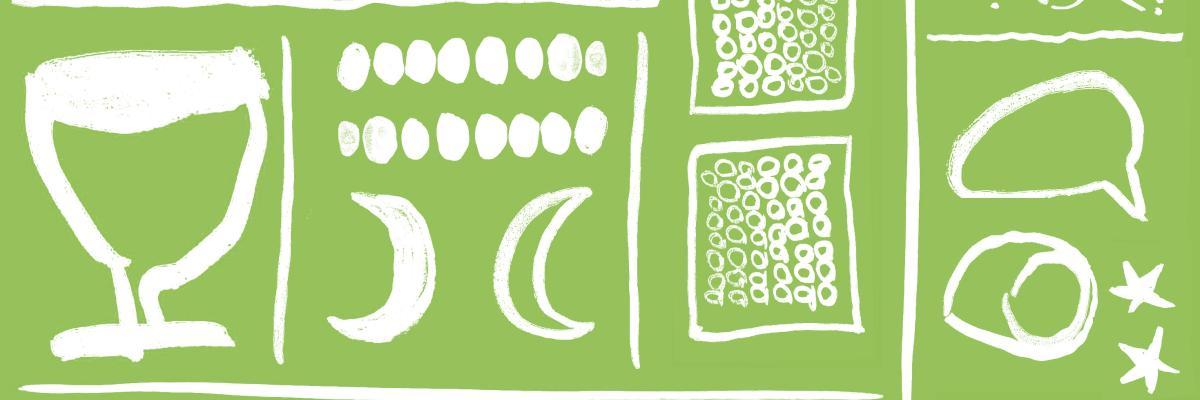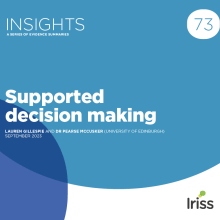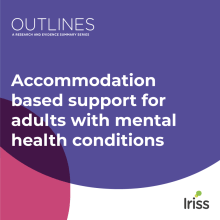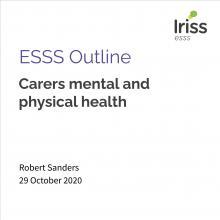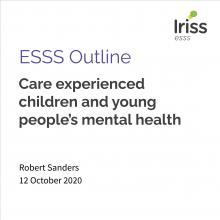What is Making Recovery Real?
Making Recovery Real brings people and organisations together to identify and prioritise what should happen to support mental health, wellbeing and recovery.
A collaboration of local organisations and services, people with lived experience and Scottish Recovery Network has been working together since 2015, and has become a key part of the mental health and wellbeing landscape in Dundee at strategic and operational levels.
A review found that 'Making Recovery Real has significantly changed the terms of the dialogue about recovery and mental health and wellbeing in Dundee. As co-production in action, it is helping to realise a genuine change in power dynamics where people with lived experience have the right to be at the centre of decision-making, service design and practice development.’
Activities of Making Recovery Real in Dundee
Making Recovery Real in Dundee activities have included:
- Bringing people together to shape local priorities and strategies, and redesign services
- The production of a suite of Recovery Stories films and an accompanying discussion guide
- Regular delivery of Peer2Peer training and the establishment of the Dundee Peer Recovery Network
- An increase in paid and volunteer peer roles in organisations and services
- Co-design of online recovery resources to support recovery conversations and recovery story sharing
Why is it important?
The Making Recovery Real approach has provided a platform for conversations about what mental health recovery really means for local people. A different approach to engagement – focused on what is important to people (rather than narrow consultation on existing services, gaps and needs) – has resulted in a very different conversation and different priorities being identified. Bringing different groups of people together in a way that is mindful of power and established ways of working, gives people a feeling of equity and equality that is important for confidence. This confidence is not only in the validity of their own experiences and views, but also in what can be achieved and their part in improving mental health and wellbeing in the city.
It’s actually pretty simple. People worked with us to decide what they wanted to, how they wanted things to be, and now they’re saying they are willing to make these things happen. How can you say no to that?
Starting with lived experience and developing approaches to share and collect stories of recovery has changed how mental health and wellbeing are discussed and viewed locally. This highlighted the contribution that people living with mental health challenges can play in their own, and others, recovery and in changing the way services are designed and delivered.
Change is happening at all levels; for individuals; in local organisations and services; and in the wider strategic environment. This means that local people and organisations are developing new understandings of recovery and mindsets are changing resulting in changes in the design and delivery of services. There is also an increased sense of agency where individuals and organisations feel that change is possible and that they are in a position to contribute to that change.
What makes it different?
Making Recovery Real is not a single intervention or defined programme but a way of bringing people together for a longer-term dialogue and involvement. The specific activities and outcomes were not pre-determined, but reflected the interests and priorities of those involved. Scottish Recovery Network played a facilitation role; building on their experience of modelling a different approach to engagement that provided structure and co-ordination, without directing local dialogue and activities. The approach described as ‘designed informality’ enables the creation of a welcoming environment where power imbalances are addressed and people are able to share their experiences, perspectives and views, and identify what was important to them and others.
The focus on recovery stories has explicitly valued and validated lived experience and highlighted the collective knowledge of what helps recovery and supports good mental health and wellbeing. Recovery story sharing has helped to build connections and trust which has been an important catalyst for action. The resulting Recovery Stories short film is not only something that everyone is very proud of, but is a useful tool to take the message of recovery and change to new audiences including strategic decision-makers and community groups.
Making Recovery Real in Dundee has resulted in increased focus on and investment in engagement, recovery story sharing and peer recovery approaches. The initiative is now embedded in the city and the approach and priorities are being recognised in the Dundee City Plan and Dundee Mental Health and Wellbeing Strategy.
What does it mean for me?
Louise Christie
(Acting Director, Scottish Recovery Network)
Our intention in sharing information about Making Recovery Real in Dundee is to inspire you to explore how you can do things differently. Making Recovery Real is not a model that can just be duplicated or scaled up. It needs to be co-created to make the most of the existing connections so essential in making things happen. In our environment where we acknowledge that we cannot continue with more of the same, then the ways of working and values underpinning Making Recovery Real offer a different way to engage a wide range of people in designing and delivering new services and supports, which meet people’s needs and aspirations.
Ruth Brown
(Team Leader, Mental Health Engagement and Involvement, Dundee Volunteer and Voluntary Action and Chair of Making Recovery Real in Dundee Partners Group)
Making Recovery Real in Dundee continues to raise the bar for standards of engagement in mental health. It has shifted our focus from systems failure and problems in service delivery, to individual and collective lived experience of mental health issues and what we can learn from these. Acknowledging that mental health challenges can affect us all helps address imbalances of power. It frees us up to share learning about how we can best support recovery. This, in turn, enables us to combine and channel community assets so that the changes achieved are changes valued by everyone in the partnership.
